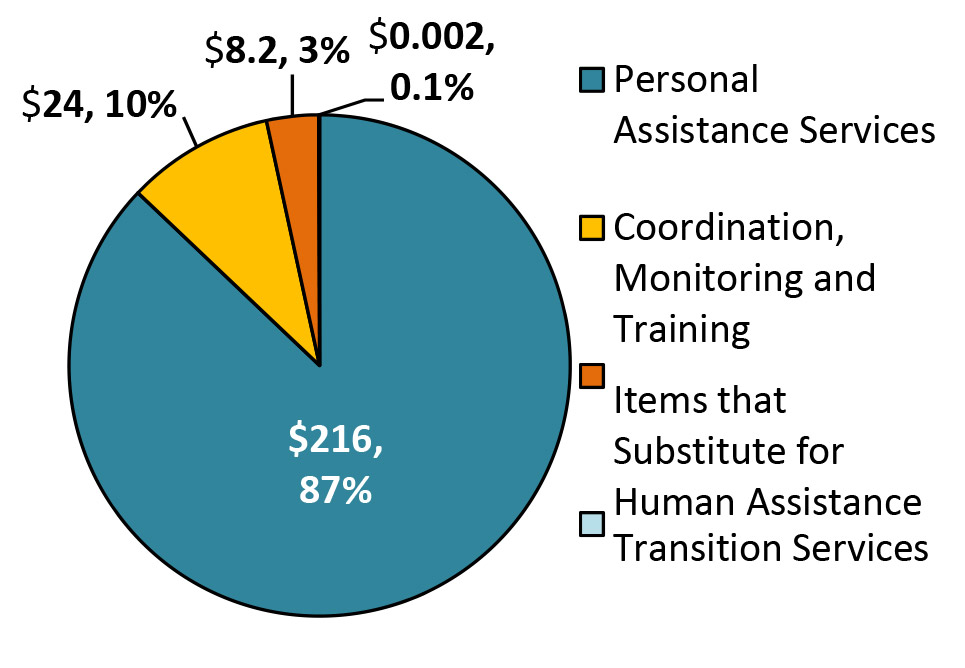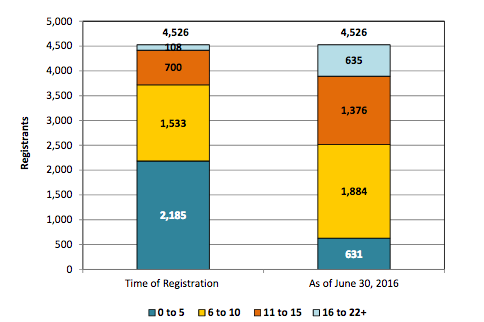Aging & Disability
One goal of a healthy society is to enable persons who are aging or have a disability to live in their own homes or other community settings rather than in institutions. For more than 15 years, Hilltop has provided consultation to states on rebalancing health care delivery and financing systems from a focus on institutional care to home and community-based services and supports. We have assisted states in designing Medicaid §1915(b)(c), §1915(c), and §1115 waiver programs for people with chronic conditions and disabilities, including a managed long-term services and support (LTSS) program for the state of New Mexico that was later absorbed into a comprehensive §1115 waiver program. We were engaged in projects to transform or evaluate LTSS systems in New Jersey and Rhode Island as well. For Maryland, Hilltop coordinated the development, testing, and implementation of LTSSMaryland, a web-based information system with functional assessments, plans of care, and program enrollment information for Medicaid beneficiaries receiving LTSS. We also consulted with the state of Mississippi on the development of LTSSMississippi.
For Maryland Medicaid and the Developmental Disabilities Administration (DDA), Hilltop analyzed the final rule issued by the Centers for Medicare & Medicaid Services (CMS) on what qualifies as a home and community-based setting for 1915(c) ad 1915(k) waiver programs. To assess compliance, we developed and administered two provider surveys for the state. We also developed checklists for the state to use when conducting site visits to providers and analyze and report the findings of the collected data.
Maryland’s Community First Choice (CFC) program, authorized under §2401 of the Affordable Care Act and implemented in January 2014, offers community-based services as a Medicaid state plan benefit to individuals who are assessed to need an institutional level of care. Hilltop conducts analyses of CFC to determine cost neutrality, assess cost effectiveness and service utilization, and monitor and refine the flexible budgeting methodology.
Hilltop recently developed an algorithm to assess an individual’s risk of nursing home admission that is now a factor that is considered in prioritizing individuals for Medicaid home and community-based services waiver programs. This algorithm—the Pre-AI (Predicting Avoidable Institutionalization) Model—predicts an individual’s risk of a long-term nursing home stay based on demographics, clinical acuity, functional status, and health services utilization.
Hilltop also links the Medicare and Medicaid data of persons enrolled in both programs to examine health care utilization for the dually eligible population across both payers. We are also able to link nursing home and community assessment data of these individuals, expanding the detail available even further and allowing for a holistic view of an individual’s service utilization.
Featured Work
Lessons from Maryland’s Community First Choice Program
In collaboration with the Johns Hopkins Bloomberg School of Public Health and with support from the Commonwealth Fund, Hilltop examined the experience with Maryland’s Community First Choice (CFC) program to highlight lessons for state policymakers, as well as how CFC might inform the development of a new Medicare personal care benefit to help beneficiaries function independently at home. CFC is an optional Medicaid state plan benefit authorized by the Affordable Care Act that enables states to provide personal care services to Medicaid beneficiaries and receive an enhanced federal match of 6 percent for these services. Findings are reported in an issue brief from The Commonwealth fund, an article in the Journal of Applied Gerontology, and a Hilltop data brief.
Medicaid LTSS Chart Books
Hilltop publishes a series of chart books on the provision of LTSS to Medicaid beneficiaries. View the chart books in the Medicaid Long-Term Services and Supports in Maryland Series.
Staff Expert
For media inquiries, click here.




